It was still pitch dark and icy cold before dawn on Monday in northern France. But for one 16-year-old Ethiopian, it was time to move. Yadaf Awal packed his few possessions in a bag and headed out of the sprawling refugee settlement on the edge of Calais—the next stage of his grueling trek that has taken him for a year across the searing Sahara through Libya, then to Italy and France. “I want to go to the U.K. I have ambition,” he says. “But anywhere in Europe is good for me.”
Until Monday, Awal had spent five months living rough in a tent in Calais’ makeshift camp known as the Jungle—a desperate ploy to sneak aboard trucks crossing the English Channel to Britain. After years of political squabbling at home and with Britain, French officials have begun a weeklong operation to clear the Jungle of about 8,300 people, in a determined effort to shut Calais’ illegal refugee sites forever. It’s far from clear, however, where the thousands of refugees will end up once the camp closes.
Plain-clothed policemen armed with teargas canisters moved into the Jungle shortly after daybreak, patroling the gravel paths as residents hurried to pack donated suitcases, and leave. Officials say the bulldozers will enter the camp early Tuesday to begin demolishing hundreds of tents and shacks, as well as numerous stores, Halal restaurants and even mosques and a church, cobbled together with wood and plastic sheeting.
It was the sight of hundreds of desperate, stateless children adrift that finally brought Calais’ refugee crisis to a head in recent months. According to the British aid organization Help Refugees, there were about 1,300 children under 18 in the camp as of Monday, who—like Awal—had arrived alone. Most are believed to be from Eritrea, Sudan and Afghanistan.
French officials have argued the childrens’ presence is reason enough to demolish the Jungle, which they say has brought soaring crime and insecurity to the area; at least 13 migrants, including one teenage boy, have been killed this year in perilous attempts to cross the Channel.
Still, hundreds of migrants have apparently slipped out of the Jungle since French President François Hollande announced last month that the camp would be demolished. Help Refugees said on Monday it believed about 20% of the Jungle’s residents had left since last month—perhaps attempting to find alternative routes to England.
The flow continued the day before the bulldozers were due to arrive. Beginning about 6 a.m. in the predawn dark, hundreds of refugees emerged in the dark from their tents and shacks in the Jungle, wheeling suitcases and carrying backbags, as they headed towards a French temporary registration center set up in a nearby warehouse. They carried an odd jumble of essentials and cherished items gathered along the way, packed into suitcases and backpacks donated by refugee groups operating in Calais. One Afghan man strummed a guitar, singing loudly as he headed down the road towards the registration center. Another rammed a cricket bat and set of cricket wickets into his backpack.
As two Sudanese men headed out of the camp, one said, “England finished! England finished! I stay in France.” Malcolm Astell, a British volunteer who has taught English in the Jungle for several months, says many now realize the Channel border is insurmountable. “There was a myth that the French were stopping them getting to the U.K.,” he says. “But a lot of people have changed their minds.”
Scenes From the ‘Jungle’ Migrant Camp Evictions Near Calais
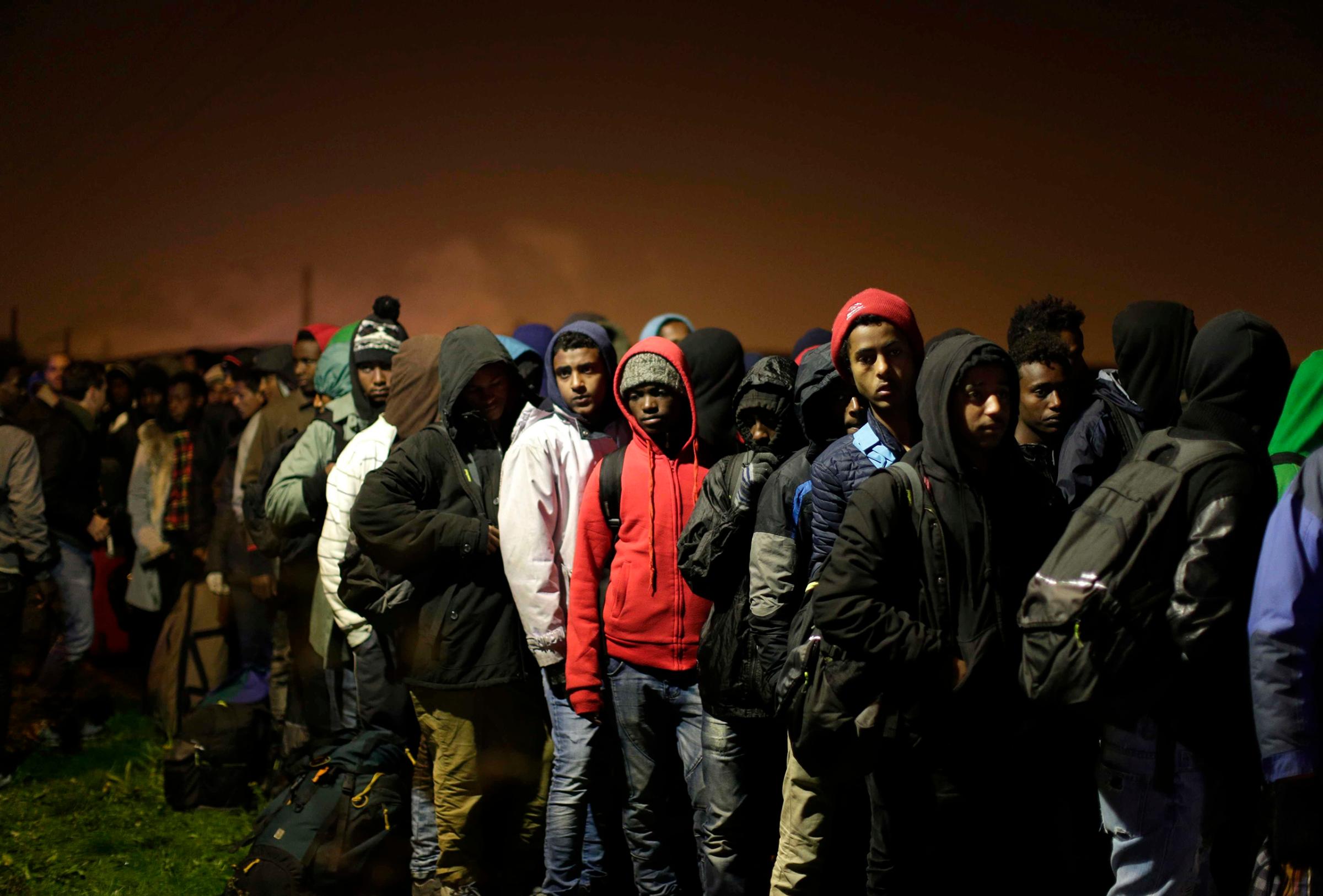
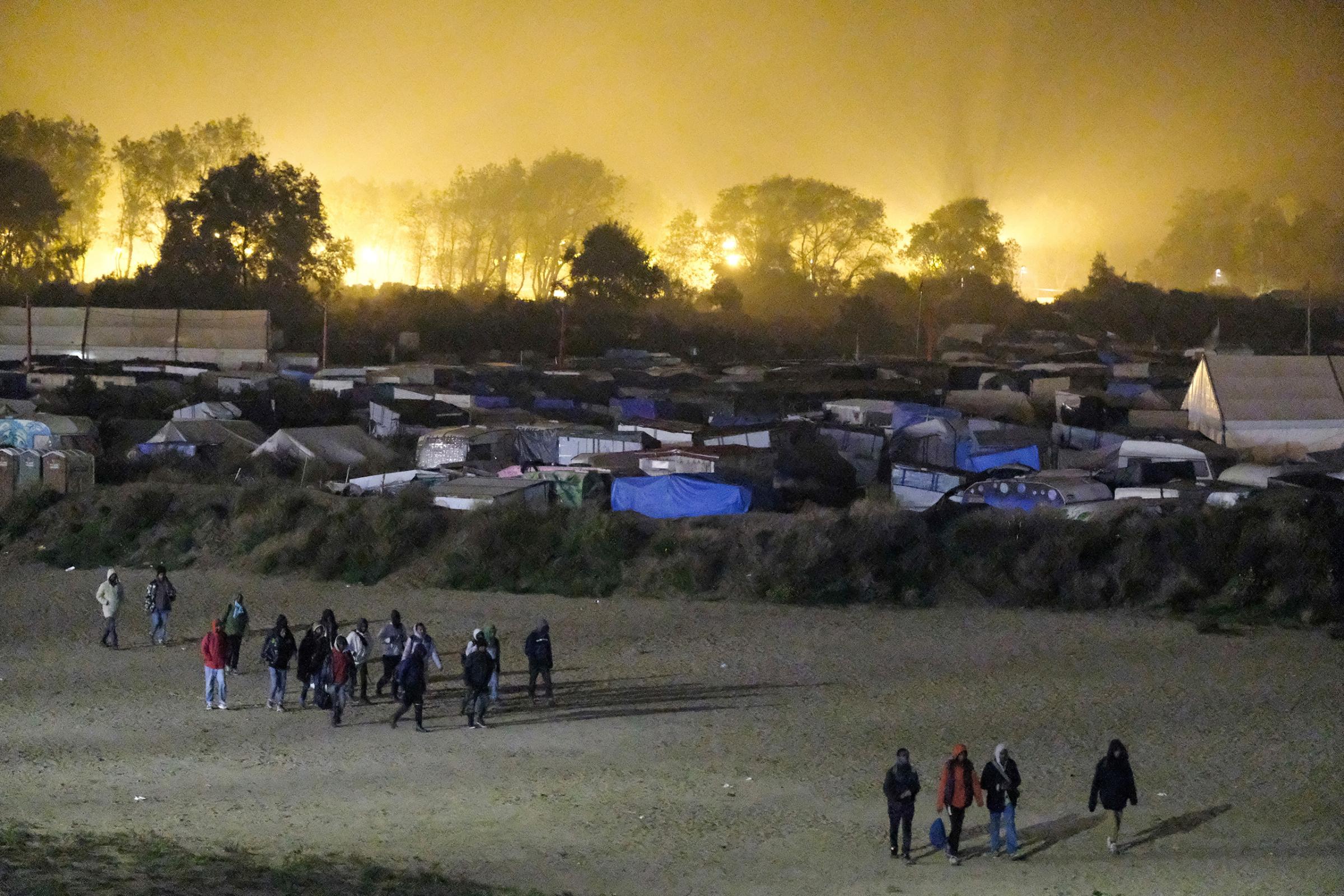
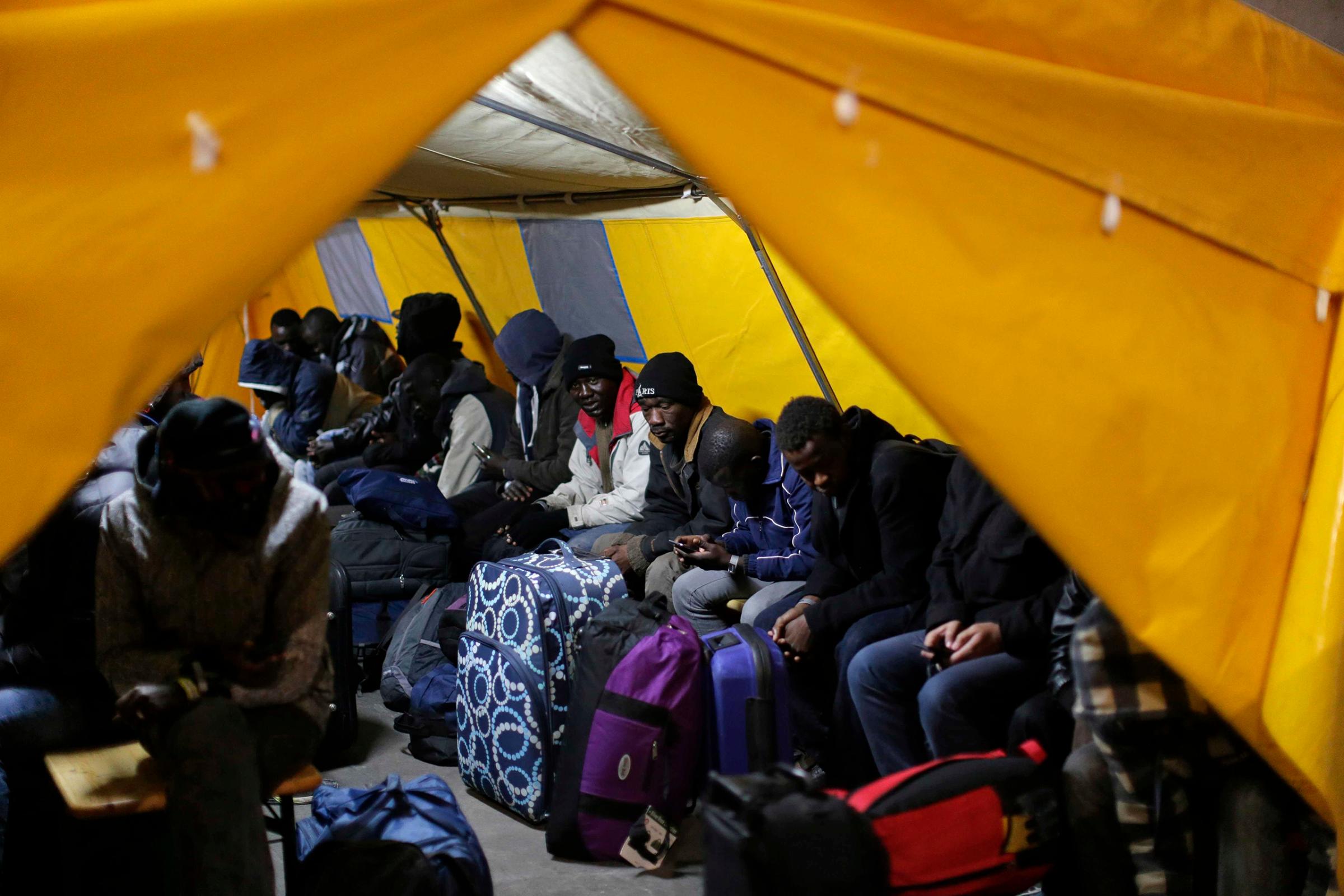
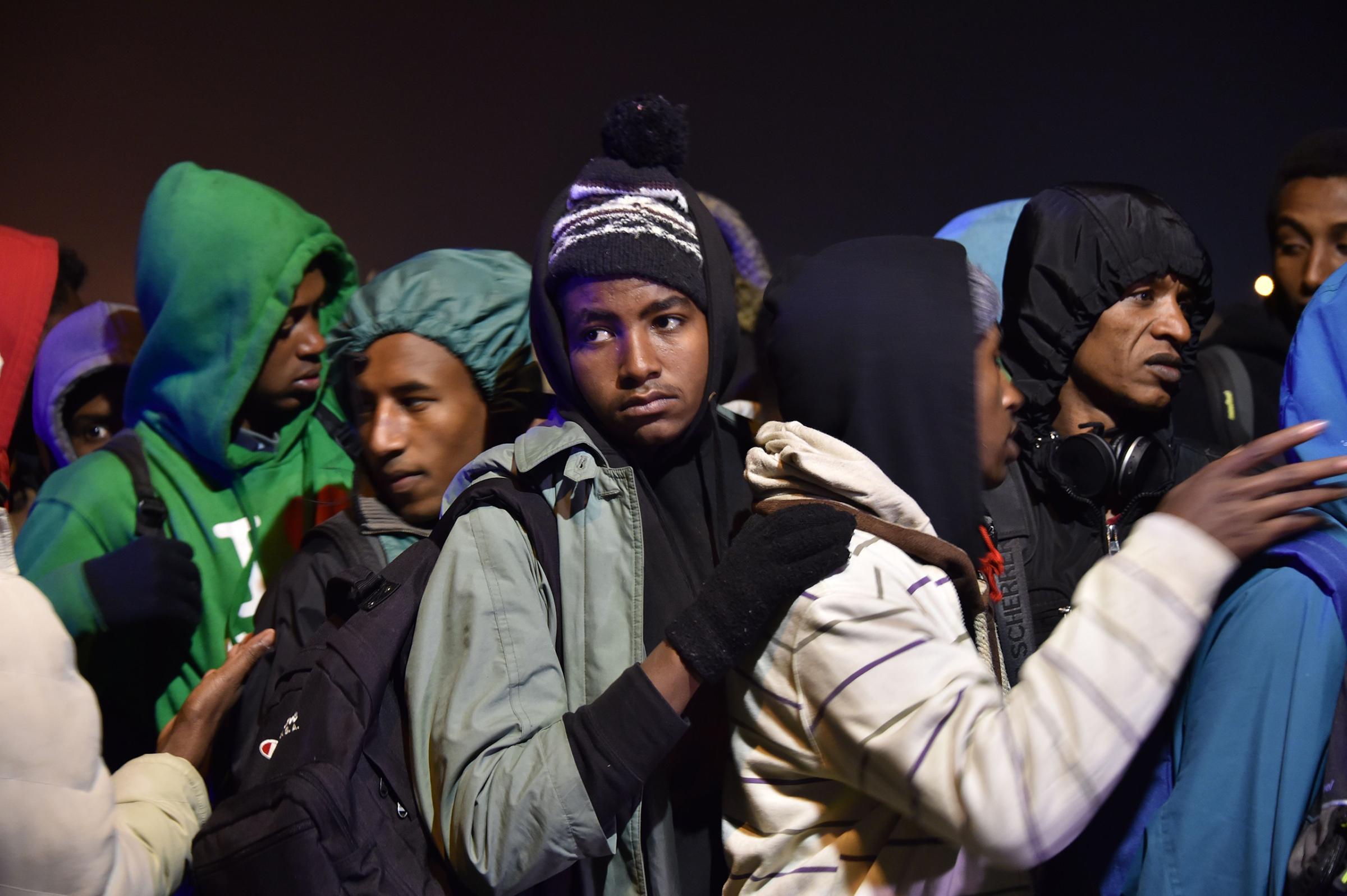
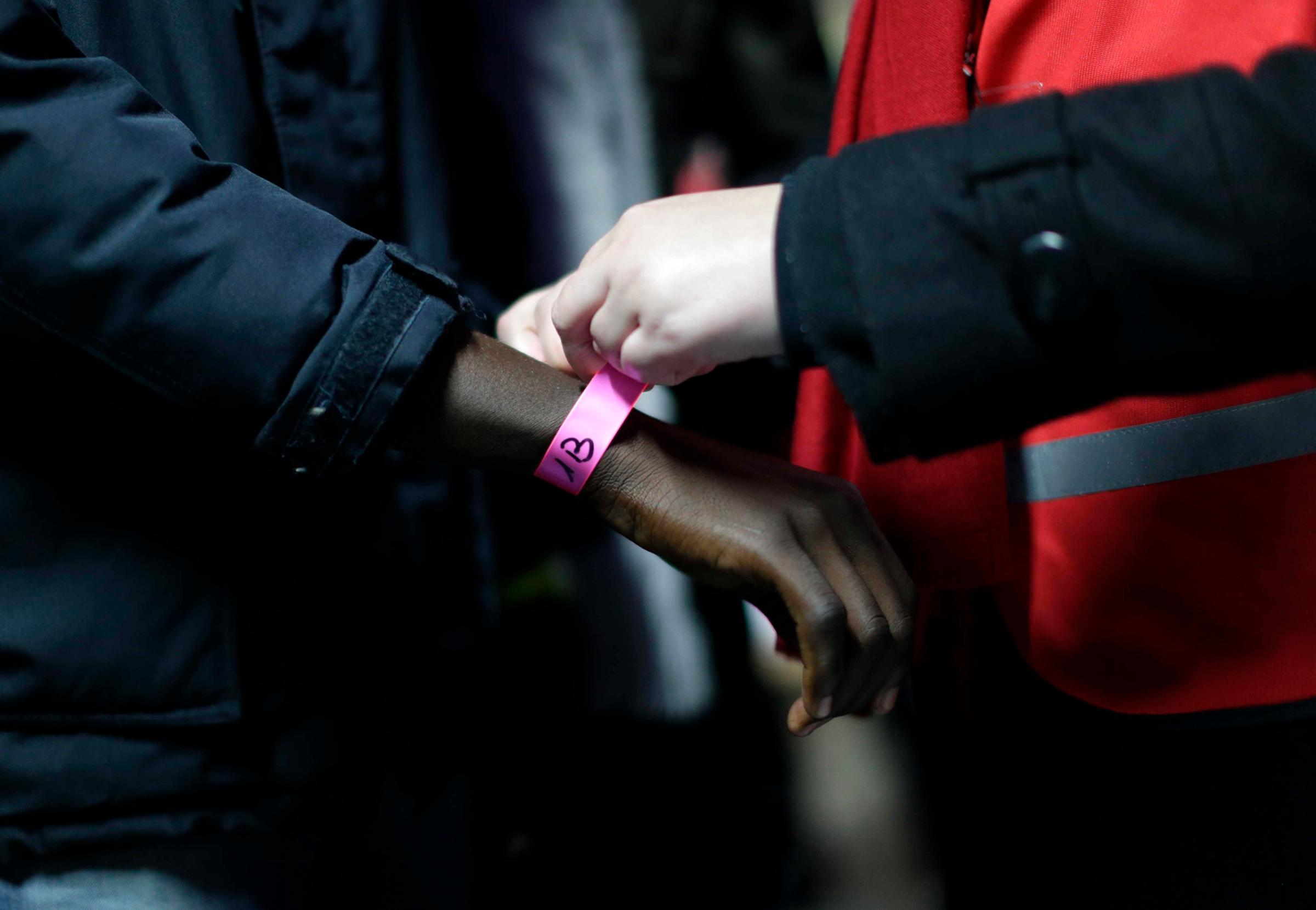
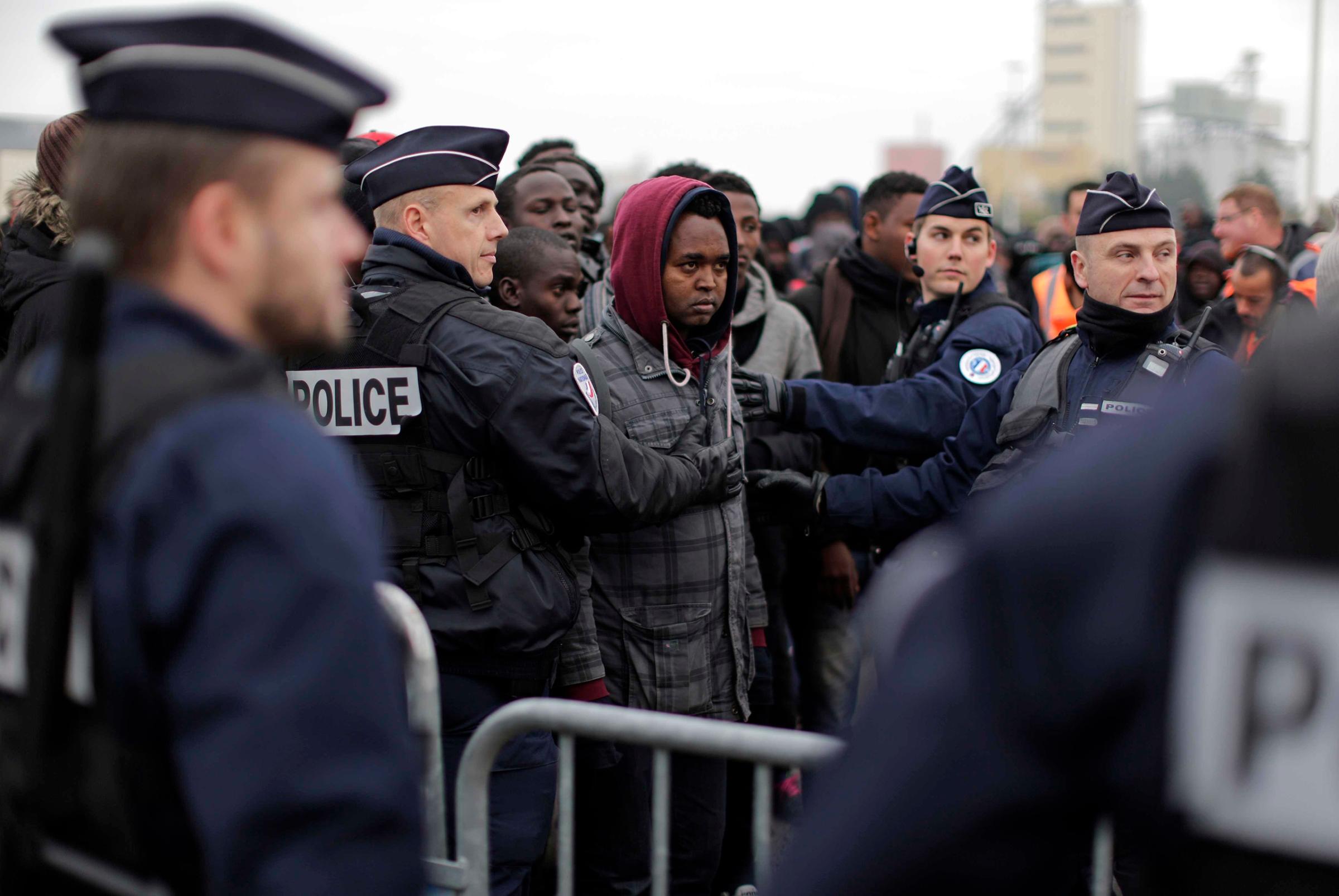
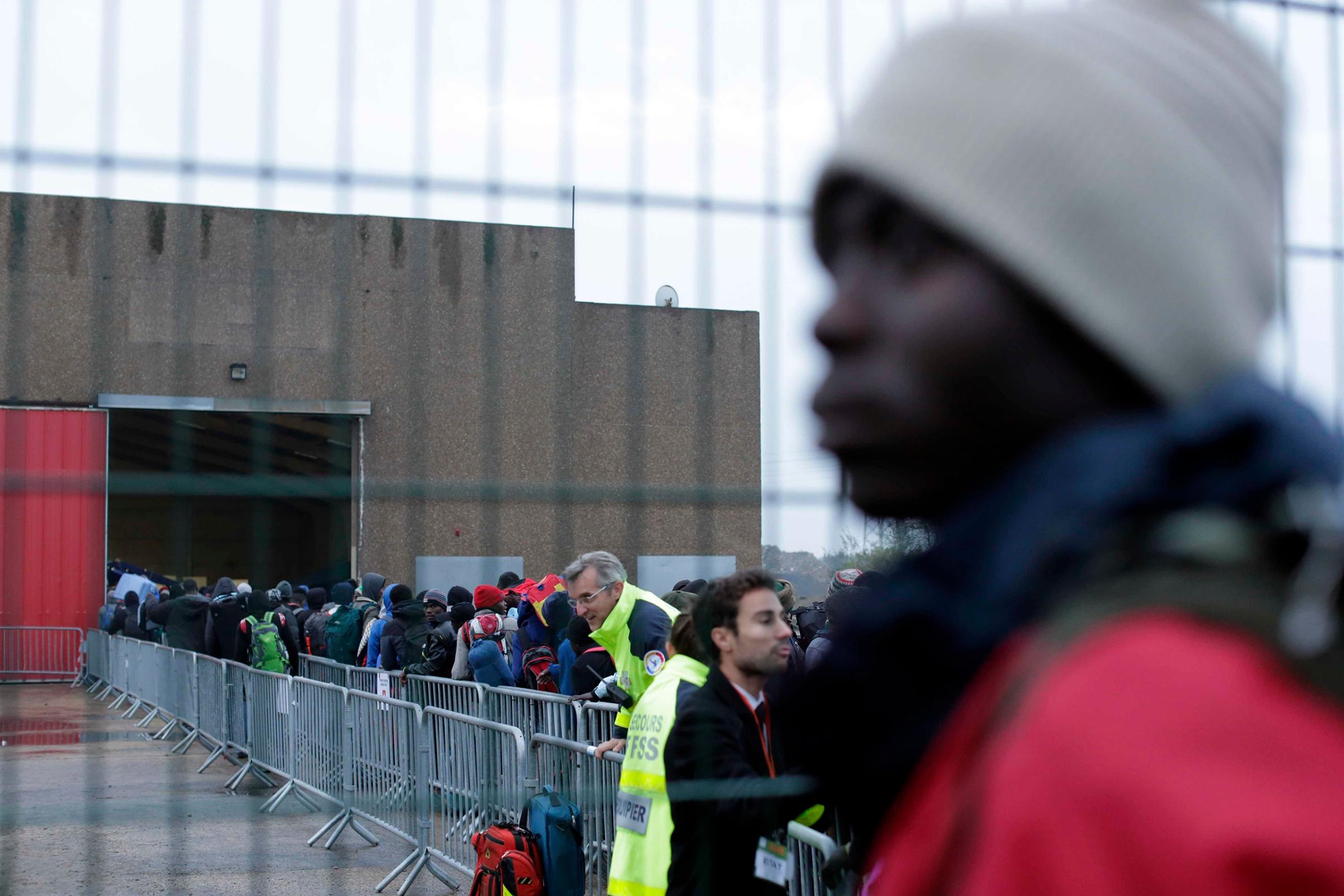
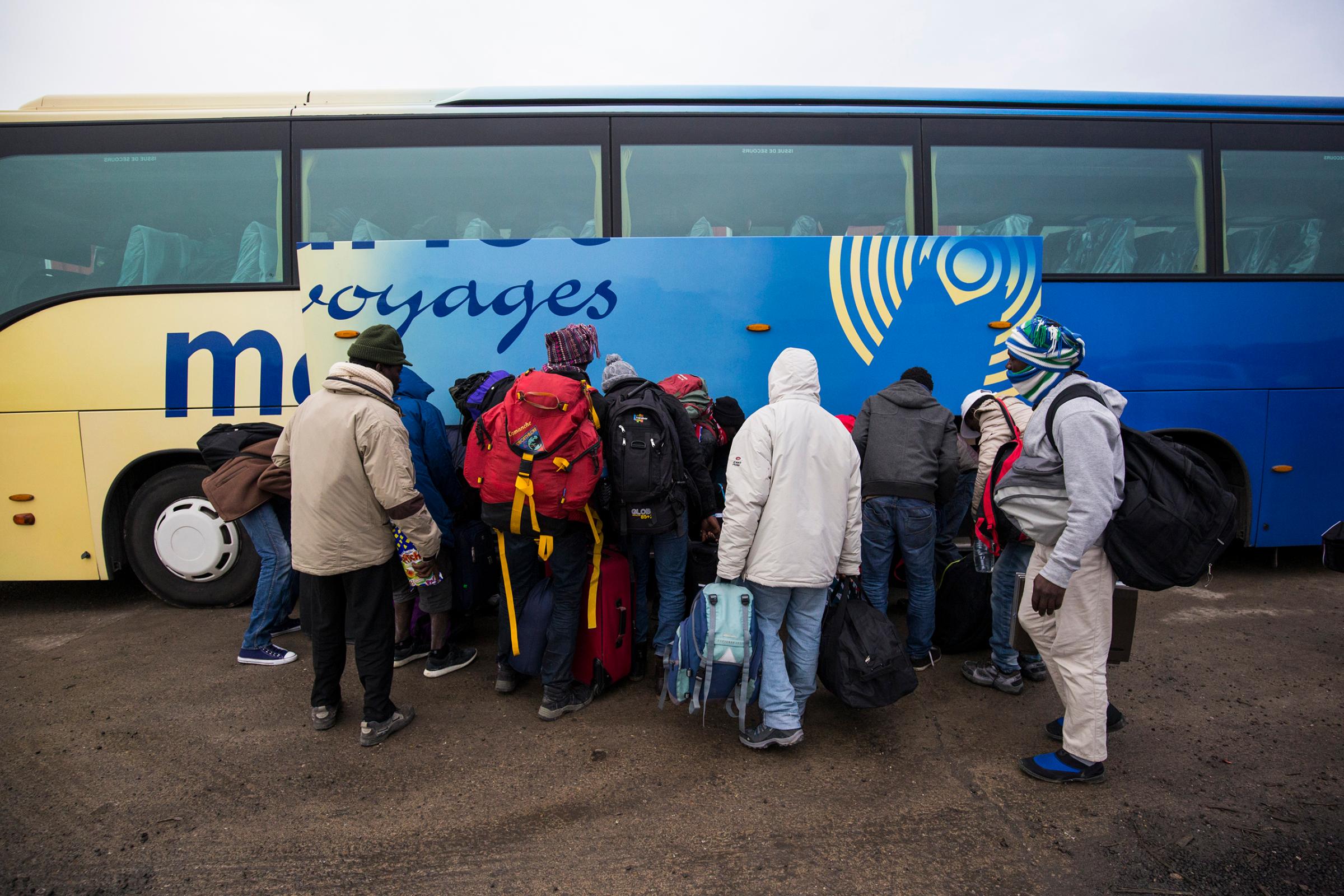
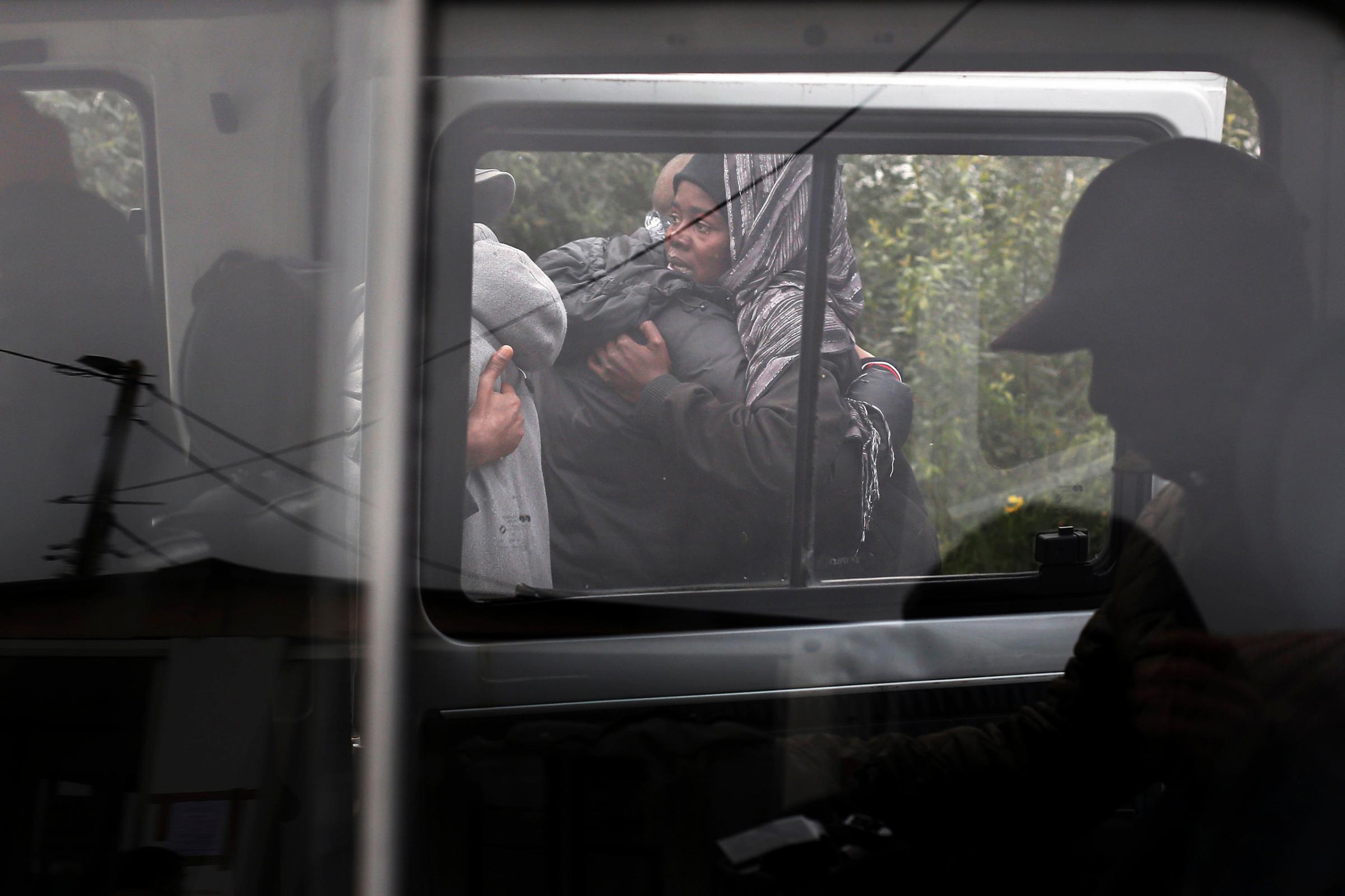
In interviews in Jungle early on Monday, many residents said they were prepared to leave—despite the uncertainty of where they might end up. Some described a strong sense of fatigue after months of hair-raising attempts to sneak into Britain, which included being chased repeatedly by French police. Awal, the Ethiopian teenager, showed six stitches in his right hand, where he had tried to climb over a tall fence in Calais that cordons off the Jungle from the highway.
“We are too tired to try more,” said Rasool Khan, 28, from Afghanistan. “Our goal was England. But if we cannot reach that goal we will stay in France. The Jungle is over.”
Omid Hashimi, Khan’s cousin traveling with him, said he was 17, but had told French officials he was 18—a legal adult—so that they would not separate him from Khan. The two had traveled through Pakistan, Iran and Turkey, before crossing nine European borders until they reached Calais in July. “We will see what is next,” he said.
French officials said they hoped to move about 3,000 people by day’s end, and thousands more in the days ahead. The 1,300 children will face intense questioning by both French and British officials in the warehouse, to determine whether they are in reality under 18, and so entitled to automatic government protection as children. If they can prove they have family in Britain, they will be transferred there, say officials, while the rest will return to the Jungle to sleep in containers, while their asylum claims are processed.
Yet few migrants have so far been accepted into the U.K. Help Refugees said Monday the British Home Office had not been able to register about 49 children under 13 living in the Calais camp, who are eligible for settlement in Britain under the so-called Dubs Amendment passed earlier this year, which obligates the country to take in the most vulnerable children. The group said the camp’s smallest residents were “being forced to remain in the Calais camp itself amidst all the confusion and chaos.“
By noon, thousands of migrants—virtually all men—had filled the huge registration warehouse. There, French officials divided them into adults and children. The adults were hurriedly shown a rough map of France, and asked to pick a region to go to — an entirely random process. “I chose Brittany. Is that a good place?” one Sudanese man asked TIME, referring to France’s Western coastline.
From there, coach buses ferried the Jungle’s residents across France, to Burgundy, Normandy, the central Loire Valley, and other parts. While many had hoped to go to Paris, officials said the French capital—where hundreds of refugees are sleeping in tents on the streets—was not an option.
Scattered across France, the 7,000 or so adults bused out of the Jungle this week could face arrest if they try to return to the area, according to French officials. “There is a real determination by the government not to create a new Jungle,” says Didier Leschi, Director General of France’s Office of Immigration and Integration, or OFII, talking to TIME in Calais on Monday. “I think people are making a mistake trying to stay in Calais.”
It is still unknown where Awal will finally find sanctuary; he says he cannot return home, where the military killed his father and has arrested his two brothers. “The Jungle has been the worst of all the journey, because this is Europe,” says the slight-built teenager, as he left the camp behind for the last time. “When we hear about Europe in our country, we think about democracy, we think they will protect us.”
More Must-Reads From TIME
- The 100 Most Influential People of 2024
- How Far Trump Would Go
- Scenes From Pro-Palestinian Encampments Across U.S. Universities
- Saving Seconds Is Better Than Hours
- Why Your Breakfast Should Start with a Vegetable
- 6 Compliments That Land Every Time
- Welcome to the Golden Age of Ryan Gosling
- Want Weekly Recs on What to Watch, Read, and More? Sign Up for Worth Your Time
Contact us at letters@time.com